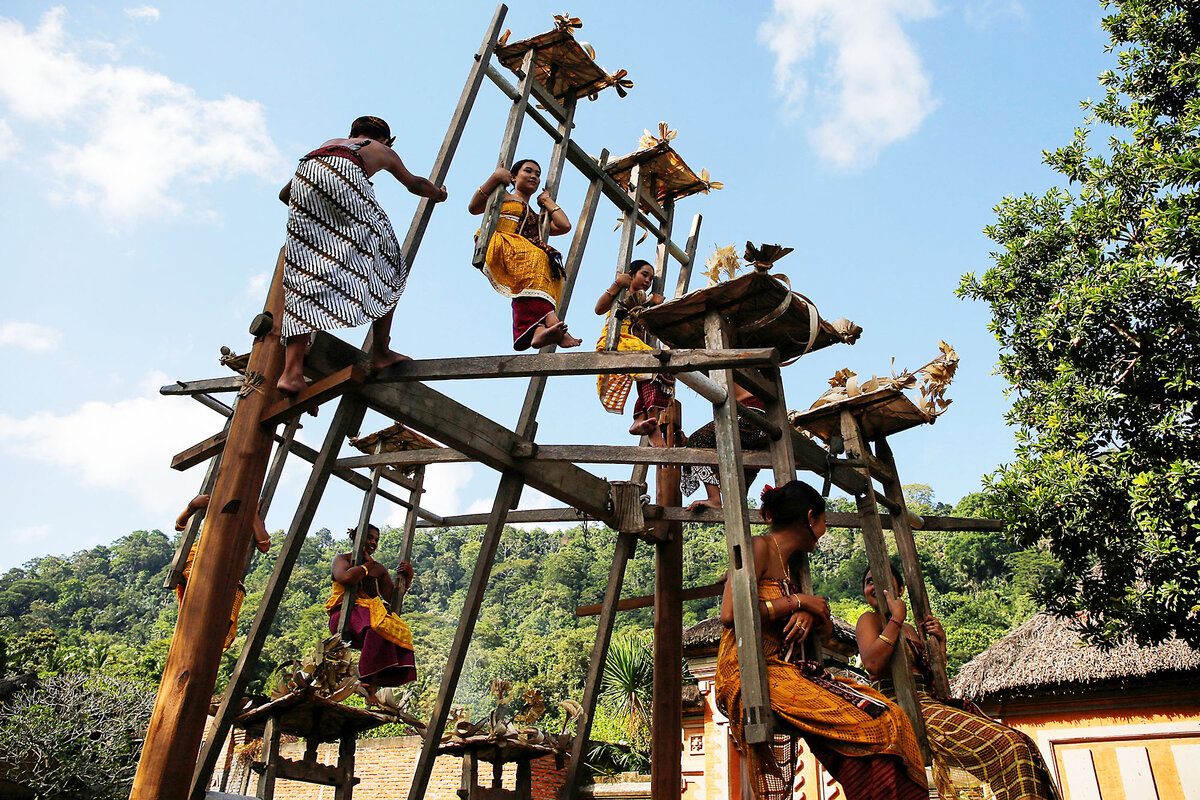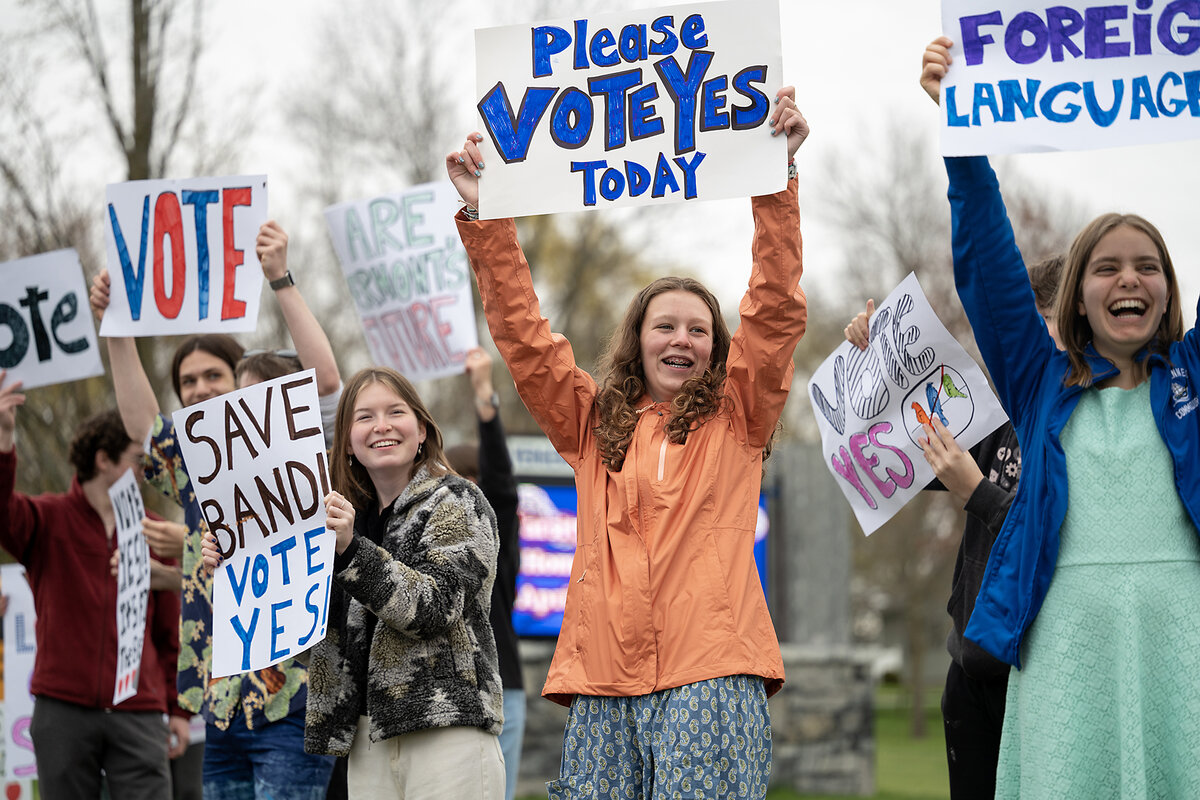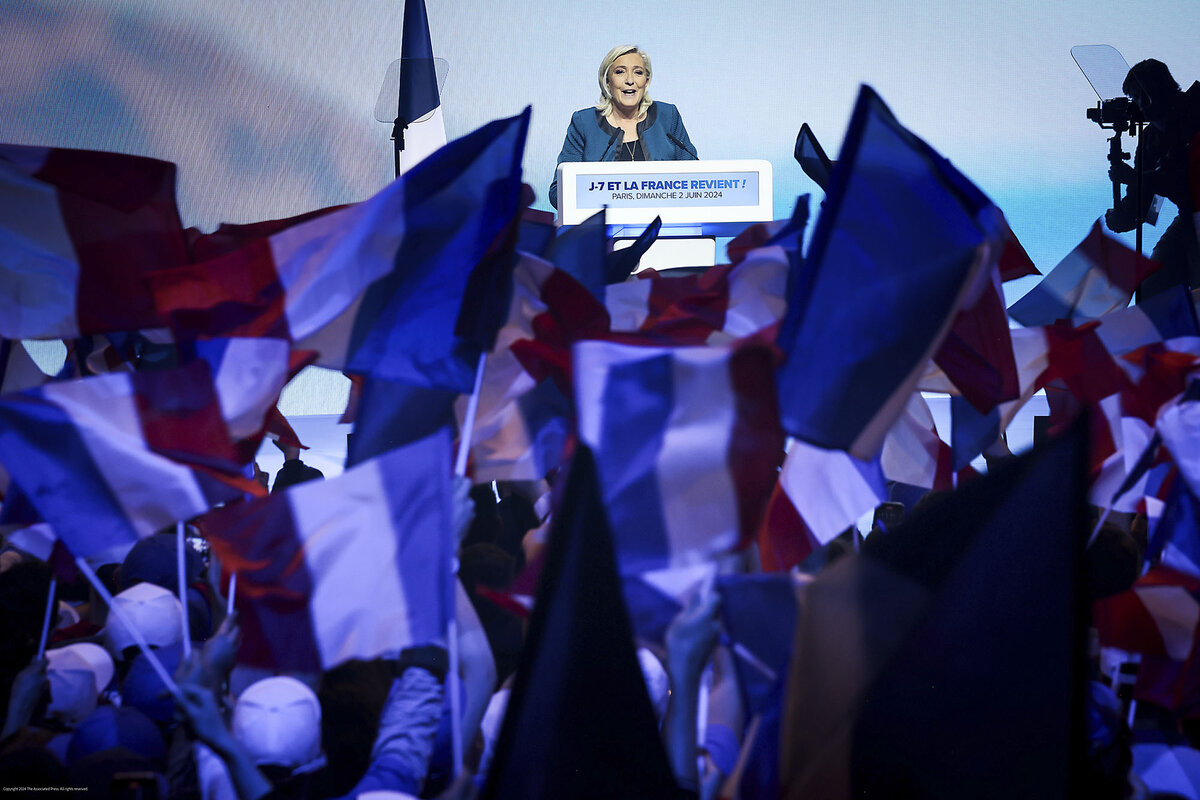Fewer students and higher costs mean school districts are considering everything from mass layoffs to widespread school closures. How can tough decisions be made while protecting a community’s sense of common good?

Why is Christian Science in our name?
Our name is about honesty. The Monitor is owned by The Christian Science Church, and we’ve always been transparent about that.
The Church publishes the Monitor because it sees good journalism as vital to progress in the world. Since 1908, we’ve aimed “to injure no man, but to bless all mankind,” as our founder, Mary Baker Eddy, put it.
Here, you’ll find award-winning journalism not driven by commercial influences – a news organization that takes seriously its mission to uplift the world by seeking solutions and finding reasons for credible hope.
Explore values journalism About usMonitor Daily Podcast
- Follow us:
- Apple Podcasts
- Spotify
- RSS Feed
- Download
 Mark Sappenfield
Mark Sappenfield
Caitlin Babcock’s Q&A with Michael Wear, author of “The Spirit of Our Politics,” is a must-read. In interviews with people like Amanda Ripley and Alexandra Hudson, we see the same things again and again: Fight the good fight, but do it with grace, patience, and love. Mr. Wear touches on something very deep when he says, “There is no one who is more easily manipulated in political life than the person who is angry.”
How to fix our politics is not a mystery, really. It’s a question of whether we want to commit to the continual self-renovation it requires.
Help fund Monitor journalism for $11/ month
Already a subscriber? Login

Monitor journalism changes lives because we open that too-small box that most people think they live in. We believe news can and should expand a sense of identity and possibility beyond narrow conventional expectations.
Our work isn't possible without your support.
Today's stories
And why we wrote them
A deeper look
( 15 min. read )
Today’s news briefs
• Boeing’s Starliner blasts off: Two NASA test pilots blast off aboard Boeing’s Starliner capsule from Cape Canaveral, Florida.
• Columbia Law Review shut down: A student-run legal journal is taken offline by its board of directors after an article accused Israel of genocide.
• Show of force in Korea: South Korea says the United States flew a long-range B-1B bomber over the Korean Peninsula, its first precision-guided bombing drill with the South in seven years.
• New Disney park? Months after a protracted legal fight, Disney and the Florida governor are set to approve a $17 billion investment by the company that could result in a fifth major theme park.
The Explainer
( 5 min. read )
The far right has been making political gains across Europe amid worries about migration, economic turmoil, and the war in Ukraine. This weekend’s European elections could set a new high-water mark.
( 5 min. read )
The Al-Mawasi strip of sand dunes and citrus farms used to be a place of vacations and sunset walks. It is now a tent city for as many as 900,000 Palestinians – a last resort from war, and a bitter portrait of how thoroughly the destruction has transformed Gaza.
( 5 min. read )
Author Michael Wear argues that anger is wrecking U.S. politics. But there is something else people can try instead.
( 5 min. read )
D-Day will be commemorated by fireworks, speeches, flowers, tears ... and yarn. An international effort – done entirely by volunteers – is a lesson in the power of community to build understanding.
The Monitor's View
( 3 min. read )
This year, countries that include more than half of humanity are holding elections. This high rate of democratic activity, however, started against a grim backdrop. The watchdog group Freedom House noted in a February report the global erosion of individual rights and liberties, driven by attacks on “the peaceful coexistence of people with different political ideas, religions, or ethnic identities.”
At midyear, the voting so far indicates an optimistic pattern. Three of the most consequential ballots – in Turkey, South Africa, and India – have shown that societies are not powerless against ruling parties that overstay their welcome. Democracies can be self-correcting and renew their resilience.
In each of the three countries, an entrenched party sought to extend and expand its power, often using political intimidation and claims of entitlement rooted in the past. To the surprise of party leaders, voters didn’t buy it. They embraced equality over division and shared government over single-party control. And notably, women and youth were key agents of change.
In India, the ruling Bharatiya Janata Party and its charismatic leader, Prime Minister Narendra Modi, have stifled dissent and stirred violent religious nationalism. The party had expected to win absolute control of Parliament as voting ended last week. Instead, after a decade in power, the BJP lost its majority after voters rejected the trend toward authoritarianism.
Their verdict marks an opportunity “to repair our social fabric torn by hate ... to build a new consensus on social justice,” wrote Yamini Aiyar, president of the New Delhi-based Centre for Policy Research, in the Hindustan Times.
Similar events unfolded in South Africa in a May 29 election. Weary of corruption, stubbornly high unemployment, and constant power outages, voters denied the African National Congress an outright majority for the first time since the country embraced democracy 30 years ago.
In March, voters in Turkey swept opposition candidates into local government across the country less than a year after tepidly giving the country’s autocratic president, Recep Tayyip Erdoğan, a third term. More than 2,000 women were elected to local offices, nearly doubling their representation since 2019. Voters embraced younger candidates, too.
The elections in these pivotal countries underscore how voters want to retain the ability to choose the ideals and values in their government. Voters rejected divisive ideologies and measures that undermined their countries’ constitutions. They expressed common concerns over jobs, education, and health care.
One telling loss for the BJP in India was in the city of Ayodhya, a flash point of sectarian violence driven by a rise in Hindu nationalism. In February, Mr. Modi had inaugurated a new Hindu temple on the site of a mosque destroyed during mob violence in 1992. Yet voters in the city united around shared economic aspirations – and voted out the party.
In all three countries, the elections showed a drop in public trust of government, perhaps caused by leaders who have sowed political divisions. To restore trust, writes Ismaeel Tharwat, a visiting business professor at American University in Beirut, leaders must “bring people who are different together and bond them.”
“This leadership should be reflected in a set of institutions with a vision of perfection and a mandate to strive towards it. It will require leaders, who are willing to take risks, to be the first to extend their hand and act with integrity,” he wrote for the World Economic Forum in January.
In three of the world’s most important democracies, voters held fast to making sure their vote matters and to choosing leaders they can trust. Integrity in government rests on the integrity of citizens.
A Christian Science Perspective
Each weekday, the Monitor includes one clearly labeled religious article offering spiritual insight on contemporary issues, including the news. The publication – in its various forms – is produced for anyone who cares about the progress of the human endeavor around the world and seeks news reported with compassion, intelligence, and an essentially constructive lens. For many, that caring has religious roots. For many, it does not. The Monitor has always embraced both audiences. The Monitor is owned by a church – The First Church of Christ, Scientist, in Boston – whose founder was concerned with both the state of the world and the quality of available news.
( 3 min. read )
When we’re facing dire weather predictions, praying from the standpoint that the God of love is our only true creator and governor is a powerful place to start.
Viewfinder

A look ahead
Thank you for joining us today. Please come back tomorrow for a story about climate change you likely won’t have read before. Scientific research overwhelmingly points to a major human role in climate change, yet there remain questions about how dire the situation is and what should be done. Political polarization over the issue means debate among scientists themselves has become harder. Do scientists need to challenge one another honestly to build trust in their research, or are the stakes too high to allow any dissent?







